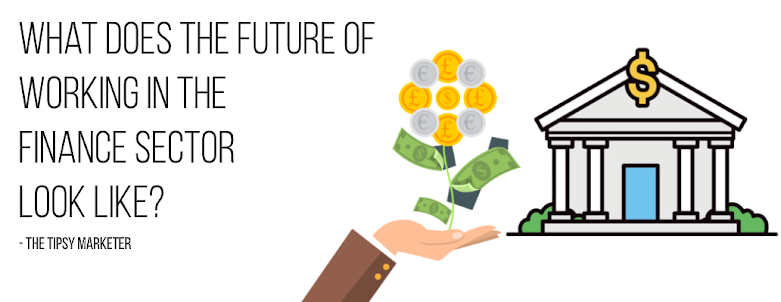What does the Future of Working in the Finance Sector look like?
The
answer to this question really depends on when and who you ask. If you were to
ask this question to those in the finance or fin tech industry a quarter ago,
you would have gotten a very different answer — probably having to do with
artificial intelligence (AI) or augmented reality (AR). In short, it would
likely be based on the presumption that the future would be more or less like
the present, just a bit more “sci-fi.”
COVID-19
has completely changed these assumptions. Faced with the very real challenge of
not having staff in the office, most financial firms have had to completely
rethink not what the future of work would be like, but the present: How to
enable teams to work from home, hire and onboard remote employees and move
forward once the crisis is over.
I
think one of the most important outcomes of this crisis is not the economic
impact but rather the lasting change we’ll see in human behaviors. Anyone who
underestimates this and believes we’ll be back to business-as-usual in three
months is deluding themselves. After 9/11, the entire airline industry adopted
— and kept — all of those “temporary” security measures. It’s been 19 years
since, and we still can’t carry a bottle of water onto a plane.
It
will likely be the same with work: The behaviors employees and employers learn
now will stick. So, what trends surrounding the future of work in finance can
we already see?
Remote Work
After
getting a taste of working from home (or wherever they like, post-lockdown), it
may be hard to get employees to accept something else. This is especially true
in finance — already one of the industries with the longest hours and amount of
“face-time.” This doesn’t mean that all banks will shut down their offices and
send their staff home, but we should expect top talent to move to the ones that
are remote-friendly, especially in the high-flying, hyper-competitive
front-office roles.
Additionally,
the switch to remote work in finance (and most industries) was so sudden and
brutal that it will shape and accelerate all other trends.
Although,
one fairly common criticism is that remote work will be less economical than
on-site work.
Companies
like Google have a very open work-from-home policy and even give away a day per
week to its developers for personal projects. This has been linked to increased
productivity and better employee happiness.
Nowadays,
office jobs are full of inefficiencies (e.g., endless meetings, commuting,
etc.). I strongly believe that remote work, with good time management and
leadership, can be as efficient as office work.
Decentralization
Decentralization
is another trend that has entered the finance vocabulary recently — along with
the “block-chain hype” of 2017 — and is one that I think is here to stay.
To
be clear, I’m not talking about building a company without a central authority
or no leadership. In the context of the future of work, decentralization simply
means having a different incentive structure — one that enables and enhances
each team member’s ownership of their work. An example would be paying equity
researchers based on performance instead of the classic flat salary, plus
bonus. This would align incentives across both investors and active managers by
adding a “skin in the game” component.
Decentralization
is one trend that will likely be significantly accelerated by the shift to
remote work. A remote-friendly culture cannot survive without a degree of
autonomy, work ownership and decentralization. Imagine how dystopian the
alternative would be: monitoring apps, GPS tracking, always-on cameras. It may
very well happen, but I can’t imagine Gen Zers choosing this over a
decentralized structure.
Competition
The
fact that the finance industry is now more competitive than ever is not news,
especially if you’re a finance student stressing over “spring week” (if you’re
not in finance, this is like an internship to get an internship. This
trend will only intensify again — accelerated by the shift to remote
work.
Having
remote teams means companies can hire from anywhere, not only from the major
financial hubs. A London-based graduate may compete with candidates from
Singapore to rural Estonia for the same role.
What this means for finance talent?
What
students interested in a career in finance should do today is not try to
predict the future but position themselves to take advantage of these existing
trends.
First,
invest in yourself by taking hands-on classes that cover things you don’t study
in school. For example, Excel modeling on LinkedIn Learning or intro to data
science on Udemy.
Second,
show that you’re passionate about asset management by creating and managing a
virtual portfolio, either on a trading platform or on an alpha capture
platform.
Third,
make yourself visible. A great start is to publish equity analysis pieces online
or to get involved in investing communities and forums.
What
I would like to stress is that this isn’t a prediction — to paraphrase a famous
quote by William Gibson, “the future is here, just not equally distributed.”
All of these trends — remote working, decentralization, increase in competition
— are already happening. The only thing that matters now is how you will
position yourself to make the most of them.









Comments
Post a Comment